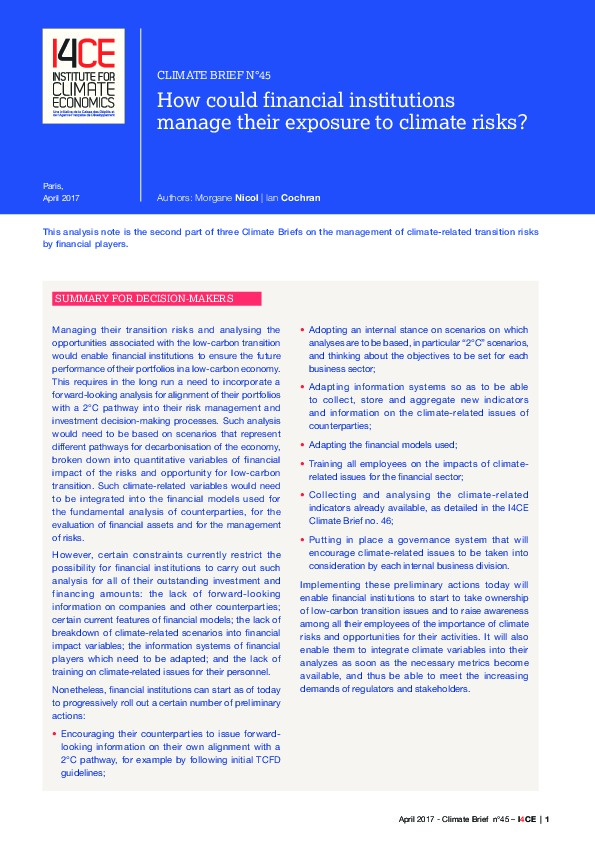How could financial actors manage their exposure to climate risks?
Financial actors should integrate a forward-looking climate assessment into their procedures and models
In order to manage climate-related issues in their portfolios, financial actors will need in the long run to incorporate a forward-looking analysis for alignment of their portfolios with a 2°C pathway into their risk management and investment decision-making processes. Such analysis would need to be based on scenarios that represent different pathways for decarbonisation of the economy, and more specifically a 2°C pathway, broken down into quantitative variables of financial impact of the risks and opportunity for low-carbon transition.
A number of constraints currently limit their ability to conduct such an assessment
However, certain constraints currently restrict the possibility for financial institutions to carry out such analysis for all of their outstanding investment and financing amounts: the lack of forward-looking information on companies and other counterparties; certain current features of financial models; the lack of breakdown of climate-related scenarios into financial impact variables; the information systems of financial players which need to be adapted; and the lack of training on climate-related issues for their personnel.
However, financial actors should begin today to implement initial actions
Nonetheless, financial players can start as of today to progressively roll out a certain number of preliminary actions:
- Encouraging their counterparties to issue forward-looking information on their own alignment with a 2°C pathway, for example by following initial TCFD guidelines;
- Adopting an internal stance on scenarios on which analyses are to be based, in particular “2°C” scenarios, and thinking about the objectives to be set for each business sector;
- Adapting information systems so as to be able to collect, store and aggregate new indicators and information on the climate-related issues of counterparties;
- Adapting the financial models used;
- Training all employees on the impacts of climate-related issues for the financial sector;
- Collecting and analysing the climate-related indicators already available, as detailed in Climate Brief no. 46;
- Putting in place a governance system that will encourage climate-related issues to be taken into consideration by each internal business division.
